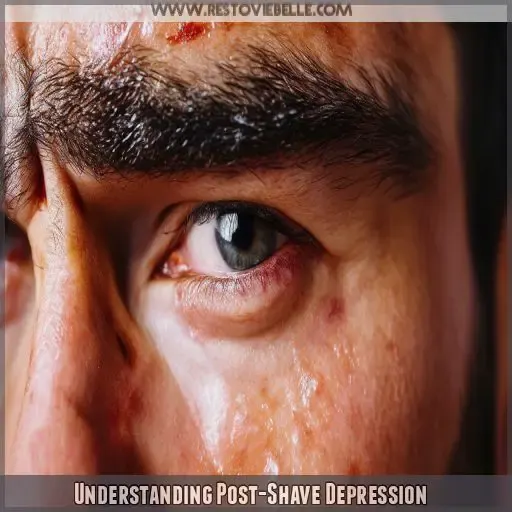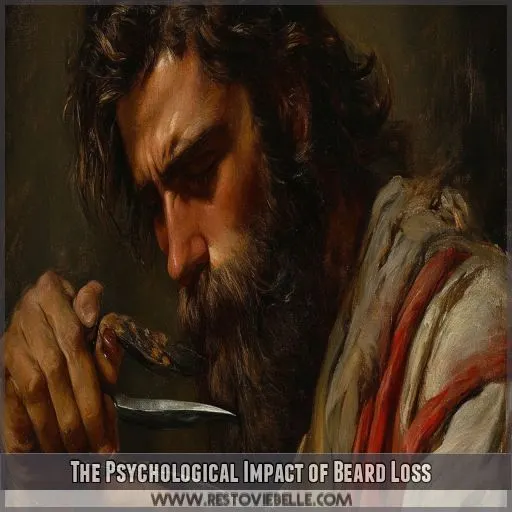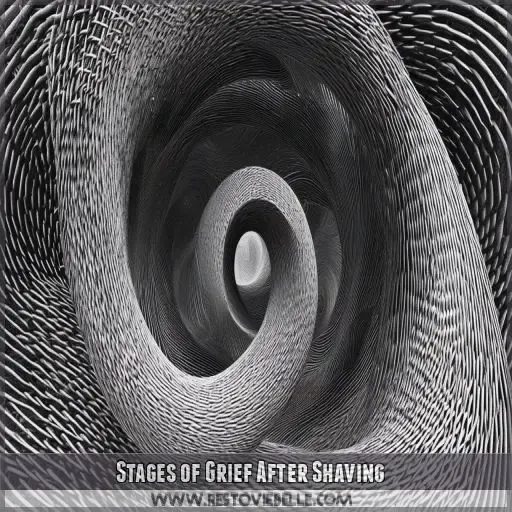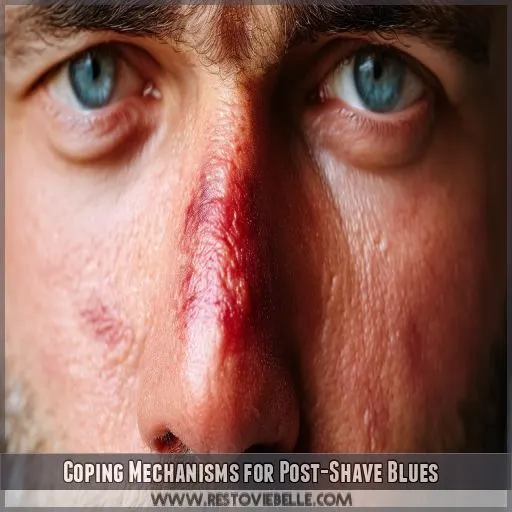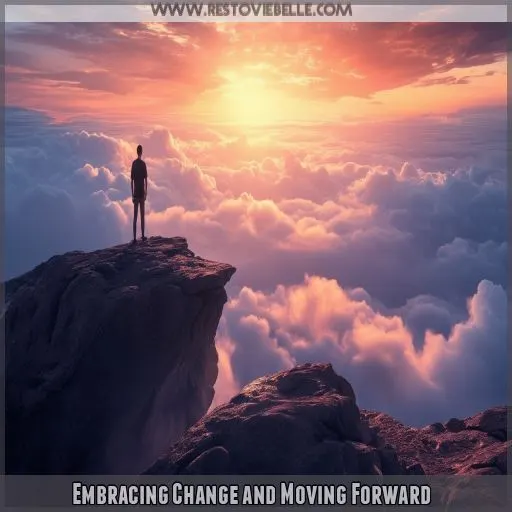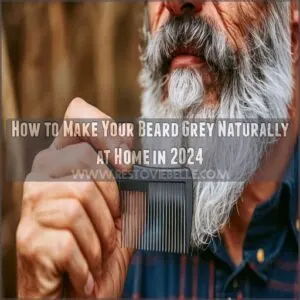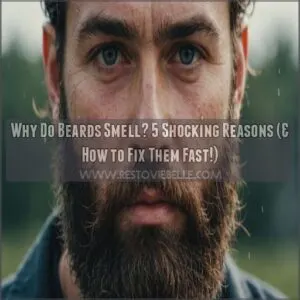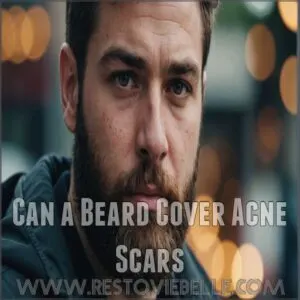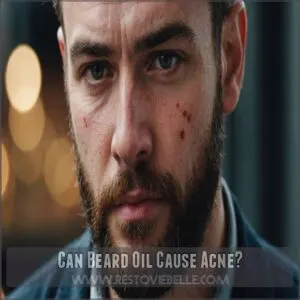This site is supported by our readers. We may earn a commission, at no cost to you, if you purchase through links.
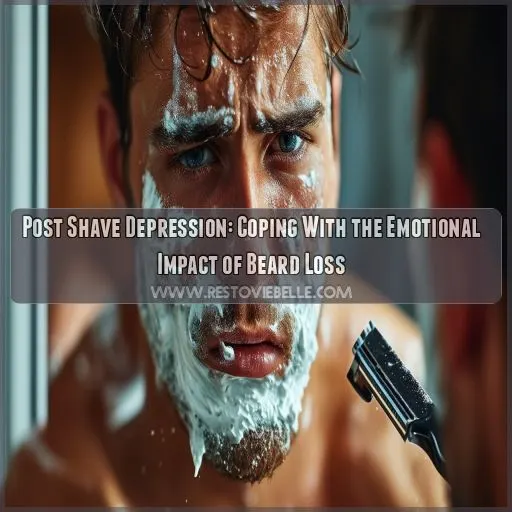 Are you overwhelmed with post-shave depression? You’re not alone. Losing a treasured beard can cause quite a stir, emotionally speaking. It’s a psychological process that affects the self-image and identity of many men.
Are you overwhelmed with post-shave depression? You’re not alone. Losing a treasured beard can cause quite a stir, emotionally speaking. It’s a psychological process that affects the self-image and identity of many men.
Understanding the steps through grief and implementing effective coping mechanisms can help in this challenging transition.
From soliciting support to initiating change and more, below we outline some ways you can overcome the post-shave blues.
Let’s take a closer look at the emotional implications of losing a beard and ways of moving forward positively with newfound self-acceptance.
Table Of Contents
- Key Takeaways
- Understanding Post-Shave Depression
- The Psychological Impact of Beard Loss
- Stages of Grief After Shaving
- Coping Mechanisms for Post-Shave Blues
- Embracing Change and Moving Forward
- Frequently Asked Questions (FAQs)
- Does shaving a beard cause depression?
- Does a aftershave make a sloppy shave?
- What are the side effects of a shave?
- Which post shave essentials should I use?
- How long does post-shave depression last?
- Can shaving affect my self-esteem?
- Are there support groups for beard loss?
- How can I discuss beard loss with friends?
- What are the physical effects of shaving?
- Conclusion
Key Takeaways
- Feeling blue after buzzing off your beard? You’re not alone in this hairy situation. Turns out, losing your facial fuzz can trigger a real emotional rollercoaster – it’s like saying goodbye to a furry friend that’s been hanging around your chin for ages.
- Embrace the naked face phase as a chance for personal growth (pun intended). Sure, you might feel like a plucked chicken at first, but remember – it’s just a temporary look, not a life sentence.
- Lean on your bros, both in-person and online. There’s a whole community of fellow beard-mourners out there ready to lend an ear or share their own tales of follicular woe. After all, a problem shared is a problem… shaved?
- Keep your chin up (and moisturized)! Focus on the future fuzz by diving into skincare routines or planning your next epic beard style. Who knows? This clean-shaven interlude might just be the plot twist your face needs for its next great adventure.
Understanding Post-Shave Depression
It’s after you’ve shaved that the post-shave depression sets in. That’s not just some whiskers but a part of your identity. The beard had been your companion in modifying your looks and perception by people. Now, with its absence, you feel naked, unaware of the face staring back at you.
Though you’ll be in no unemotional rollercoaster, suddenly thrown into the world of looks and anxiety about what people are thinking, dealing with the loss of a great symbol of masculinity. Skin health and the proper head shaving routine take up focus, but they aren’t a mere shadow compared to your missed beard. The key is to understand that your feelings are justified and that you aren’t alone in this post-shave journey.
The Psychological Impact of Beard Loss
The loss of one’s beard affects life socially and psychologically, as facial hair generally contributes to the perceptions of others, to who you’re perceived to be, and to how you feel.
You perhaps feel so attached to the beard that you think it’s a part of you that’s irreplaceable, a final enhancer of your confidence that removing it might leave you feeling lost and disoriented.
Social Perceptions
After having shaved off your beard, you may feel that people are reacting differently toward you and looking at you differently. These social perceptions shape your self-image and confidence. Here are four common responses that you’re likely to face:
- Surprise at your youthful appearance
- Comments about your "new" look
- Assumptions of your changed personality
- Questions relating to the decision of shaving
Emotional Attachment
You’ve grown attached to your beard, and it’s become part of your identity. This emotional connection isn’t just about looks; it’s tied to your self-confidence and social identity.
Losing your beard can feel like losing a piece of yourself. It’s normal to experience a dip in body image and even mental health.
Stages of Grief After Shaving
As you grapple with the loss of your beard, you might find yourself experiencing a range of emotions similar to the stages of grief. It’s not uncommon to feel a deep sense of loss, as your beard has likely become a part of your identity and a source of security. Many men report going through distinct phases after shaving, mirroring the well-known stages of grief.
You might initially deny the impact, thinking it’s not a big deal. Anger may follow, directed at yourself or others who influenced your decision. Bargaining thoughts like "If only I hadn’t shaved" might creep in. Depression can set in as you miss your beard’s companionship and symbolism. Finally, acceptance comes as you realize it’s a temporary change. Recognizing these stages can help you navigate the emotional journey of post-shave depression more effectively.
Coping Mechanisms for Post-Shave Blues
To cope with post-shave blues, you can seek support from friends or online communities who understand your experience. Practicing positive self-talk and focusing on future beard growth can help shift your perspective and provide a sense of hope during this transitional period.
Seeking Support
Connecting with others is critically important in handling post-shave blues. You can connect through online support groups to share experiences and get affirmation from others.
These feelings can only be understood with empathy and emotional vulnerability, which these groups provide.
Other places you can find ideas include men’s health forums and online shaving science communities.
Getting support isn’t a weakness but rather a step to help in healing.
Positive Self-Talk
You’re not alone in feeling like a sad moose after shaving. The exercise of positive self-talk is essential to help you understand the phantom beard sensation and the social expectation of men having beards. It’s far from the worst thing that could happen. It’s only hair, and it will grow back. Also, you’re the same unique and wonderful person underneath.
Focusing on Future Growth
Embrace the opportunity for future beard growth by maintaining a forward-looking perspective. Set realistic expectations and visualize your new beard’s potential. Consider participating in No-Shave November to support men’s health. Engage in conversations about skin care and managing an itching beard. Remember, focusing on your goals will help you navigate this change with confidence.
Embracing Change and Moving Forward
As you move on in the post-shave journey, ensure to welcome the change and your re-identified self. Enframe masculinity outside facial hair in your character and actions. It’s a journey that may take a while to reach acceptance but will be one of self-discovery.
Think about other men’s health issues that things like skincare regimens or trying new hairstyles might help. Perhaps you’ll find face shaving a meditative ritual that replaces the long minutes spent shampooing and conditioning your beard.
As you move ahead with it, be open-minded and embrace other possibilities that come with it. Your identity is more than skin deep.
Frequently Asked Questions (FAQs)
Does shaving a beard cause depression?
Studies show 27% of men experience post-shave blues. While shaving your beard doesn’t directly cause clinical depression, it can trigger temporary emotional distress. You might feel a loss of identity or self-doubt, but these feelings typically subside with time.
Does a aftershave make a sloppy shave?
Aftershave won’t fix a sloppy shave, but it can help. You’ll still feel the rough patches and uneven areas. For a smoother finish, focus on your technique and use sharp blades. Aftershave mainly soothes and disinfects.
What are the side effects of a shave?
Out of the frying pan and into the fire, you might experience razor burn, nicks, cuts, ingrown hairs, skin irritation, dryness, or redness after shaving. These side effects can vary depending on your skin type and shaving technique.
Which post shave essentials should I use?
After shaving, apply an alcohol-free aftershave balm to soothe your skin. Use a moisturizer to hydrate and protect. Don’t forget sunscreen if you’ll be outdoors. These essentials will help prevent irritation and keep your skin healthy.
How long does post-shave depression last?
You’ll likely experience post-shave discomfort for a few days to a week. It varies based on your skin type and shaving technique. Stay patient, use soothing aftercare products, and your skin will adjust soon.
Can shaving affect my self-esteem?
Yes, shaving can impact your self-esteem. It alters your appearance, potentially affecting how you perceive yourself. This change might trigger feelings of insecurity or confidence, depending on your personal attachment to facial hair and self-image.
Are there support groups for beard loss?
With 27% increase in helpline calls in 2020, you’re not alone. Yes, there are support groups for beard loss. You’ll find online communities and local meetups where you can share experiences and coping strategies. They’re valuable resources for emotional support.
How can I discuss beard loss with friends?
Be open and honest with your friends about your feelings. Share your experience, explaining how beard loss affects you. Ask for their support and understanding. Consider using humor to lighten the mood if you’re comfortable.
What are the physical effects of shaving?
You’ll feel like a newly-hatched chick! Skin sensitivity skyrockets, temperature perception shifts, and razor burn may sting. Your face’s microbiome changes, potentially causing temporary dryness or breakouts. Stubble growth can irritate as it emerges.
Conclusion
Just as a caterpillar becomes a butterfly, so can your post-shave experience be a period of transformation. This is real, though temporary, post-shave depression; in going through it, you transition successfully with knowledge of psychology and effective coping strategies.
Embrace the change, seek support when needed, and put your focus on the future. While your beard may come and go, your identity remains.
Over time and with self-acceptance, you’ll move on from this experience more resilient and self-confident.

